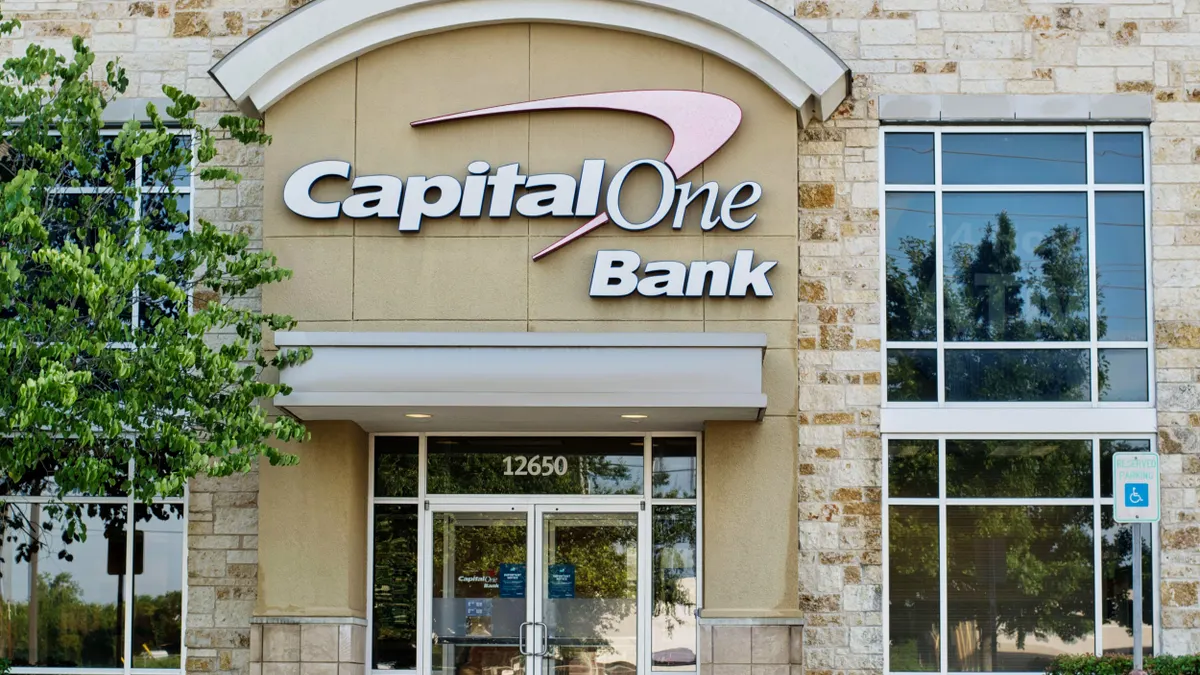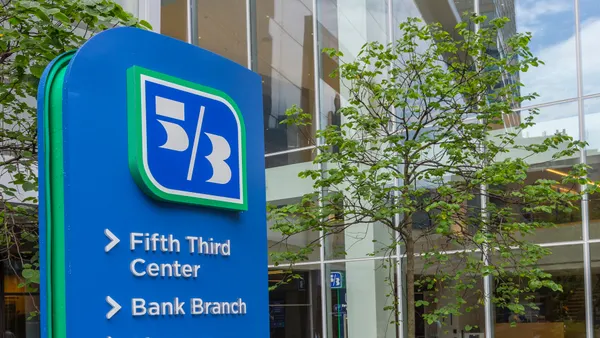UPDATE: April 20, 2021: Wells Fargo analysts will receive bonuses of $10,000 spread out over six months, and its associates will get $20,000, Bloomberg reported Monday, citing an anonymous source.
“The past year has placed great pressure on our talent in certain client facing/revenue-generating roles in the corporate and investment banking division due to unprecedented deal flow and client activity,” the bank said in a statement, according to the wire service. “As such, we’ve decided to pay our analysts and associates a financial allowance.”
-----
Three internal bank policies had wide-ranging ripple effects on the industry in 2020: Morgan Stanley’s vow to not lay off any employees during the pandemic; Bank of America’s $1 billion pledge to fight racial inequality; and Wells Fargo’s move to tie its operating committee members’ compensation to their efforts to boost representation and inclusion of diverse employees at the company.
So far in 2021, the banking sphere has seen two such deeply affecting narratives: the revelation of work expectations for junior analysts at Goldman Sachs; and Citi’s counter that it will let most of its staff work at least three days a week from the office and as many as two days remote after the COVID-19 pandemic subsides.
On a number of issues, such as race and office-return timelines, banks have tended, at least over the past year, to flock to policies seen as positive or pivot from those that fall flat. Now that the Citi and Goldman storylines have had a couple of weeks to digest and vaccinations are ramping up, a number of financial institutions this week have tipped their hand as to where they fall on the continuum that, at one end, espouses hybrid schedules, and at the other, is reining in a legacy of 100-hour workweeks.
Barclays’ memo Thursday stating that analysts and associates shouldn’t be expected to work between 9 p.m. Friday and 9 a.m. Sunday — unless it’s unavoidable — springboards directly off of Goldman’s renewed effort to keep analysts offline during the same hours. Barclays further advised its youngest employees to take two five-day vacations a year, during which they should completely disconnect from work.
"This is really meant to express in a very material way that culture of care for mental health," John Miller, Barclays’s global head of banking coverage, told Bloomberg. "The working-from-home dynamic, the isolation, we are keenly aware of those challenges and we want to be keenly responsive to those challenges and empathetic and ensuring that we are investing appropriately in the mental health of our team."
The survey by Goldman analysts that revealed working conditions at the bank also threw a spotlight on potential burnout. The 13 respondents, on average, gave a 35% chance they’d be at Goldman in six months if conditions didn’t improve.
In that spirit, Bank of America is throwing money at the issue. The executive committee of the bank’s global corporate and investment banking unit told its junior investment bankers in a memo Thursday that it would bump their pay starting next month. Analysts can expect an extra $10,000, a source told Bloomberg, while increases for associates and vice presidents would be closer to $25,000.
"Given our ongoing remote work environment — coupled with the recent pace of market activity as well as client requests and transactions — your contributions and commitment have become more important than ever to the continuous success of our deal teams and client relationships," the committee wrote Thursday, according to the wire service. "Your efforts and well-being are critical to our success."
Other banks are offering time. TD and the Royal Bank of Canada are giving employees an extra paid day off this year, the banks said separately Thursday. The memos come a day after the province of Ontario declared its third statement of emergency since the pandemic began. Both banks are headquartered in Toronto.
RBC, additionally, is giving all of its employees a free, one-year subscription to the meditation app Headspace. The bank needs to "eliminate the stigma associated with asking for time to focus, concentrate, and in some cases, log off and recharge," CEO Dave McKay said in RBC’s memo Thursday, according to Bloomberg.
Citi, in its hybrid-schedule declaration last month, also chose to give its employees an extra day, dubbing the Friday before Memorial Day "Citi Reset Day."
Ever the challenger, Revolut, took the notion of an extra day — or suggestions of five-day vacations — and raised it Thursday. The U.K.-based neobank told its more than 2,000 employees, in a memo, that it would let them work overseas for up to two months a year.
Employees who "wish to work outside their country of employment for personal and non-business related reasons will be able to do so for a period of up to 60 calendar days over a rolling 12 months," the company said in a statement seen by Bloomberg. Those taking advantage of the policy must adhere to guidelines from health officials in their home areas and destinations.
"Our employees asked for flexibility, and that’s what we’re giving them as part of our ongoing focus on employee experience and choice," Jim MacDougall, Revolut’s vice president of human resources, told The New York Times.
More than 56% of Revolut employees would prefer to work remotely two to four days a week, an internal survey found, according to Bloomberg. Meanwhile, 36% wanted permanent remote work.























